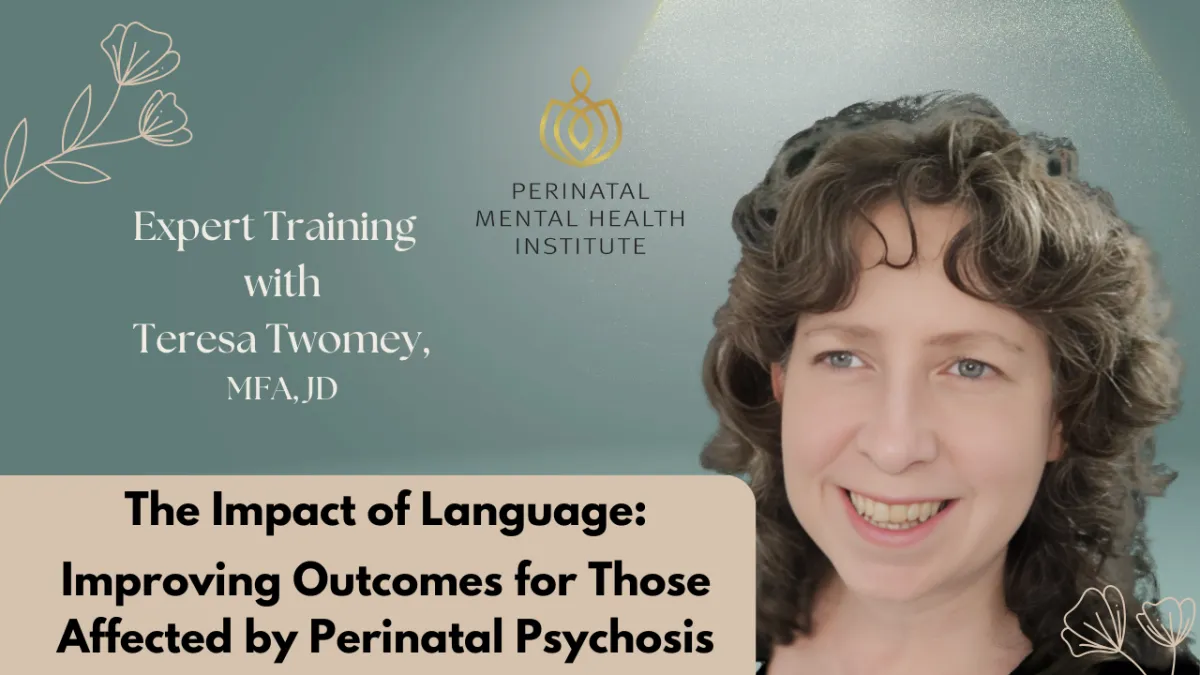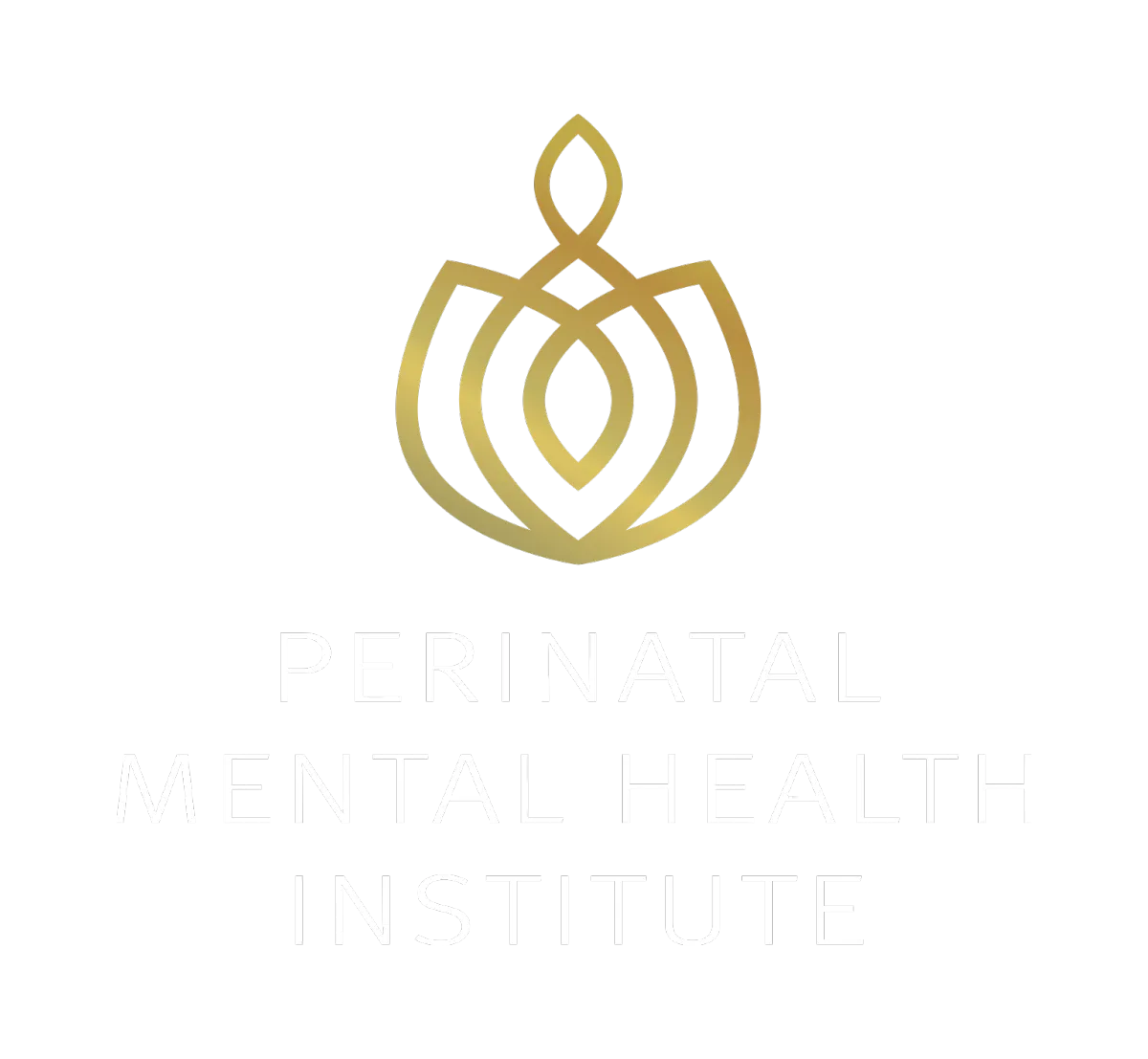Tune In for PMHI's December Webinar
Friday, December 5th • 3:00 PM - 4:30 PM • Irish Time

The language we choose when discussing perinatal psychosis doesn't just describe the condition – it actively shapes whether someone seeks help, receives appropriate care, or suffers from stigma. This powerful training provides a comprehensive look at the language surrounding "Postpartum Psychosis," from research definitions and clinical language to public awareness messaging and media representation.
Participants will learn how current language practices contribute to delayed or missed diagnoses, complicate recovery processes, perpetuate harmful stereotypes, and increase stigma for those affected. We will explore alternatives to problematic terminology and use a practical framework for evaluating language through a whole-person lens.
Central to this approach is Twomey's three-question assessment:
Is it accurate/true?
Is it necessary/helpful?
Is it kind/compassionate?
Participants will learn to apply this framework across various contexts, from clinical documentation to public communications. Attendees will gain tools for recognizing and addressing these issues in their own work environments. This evidence-informed training synthesizes insights from interactions with hundreds of women and family members, conversations with leading authorities, scholarly research, education and lived experience, providing both theoretical understanding and practical applications for improving outcomes.
Friday, December 5th • 3:00 PM - 4:30 PM • Irish Time
Register Here:

Why This Training Matters
The language we choose when discussing perinatal psychosis doesn't just describe the condition—it actively shapes whether someone seeks help, receives appropriate care, or suffers from stigma. Current language practices contribute to delayed diagnoses, complicated recovery processes, harmful stereotypes, and increased stigma. This training provides tools to transform communication and improve outcomes.
What You'll Learn:
How current language practices impact diagnosis and treatment seeking
The connection between terminology and recovery processes
Alternatives to problematic terminology in clinical and public settings
Twomey's three-question framework for evaluating language
Practical applications across clinical documentation and public communications
Tools for recognizing and addressing language issues in your work environment
Evidence-based approaches to reducing stigma through improved communication
Meet Your Instructor!
Teresa Twomey,
MFA, JD, Survivor
Teresa Twomey is a survivor-leader with over 20 years of maternal mental health advocacy experience, has lived experience of postpartum psychosis (PPP), OCD, PTSD, and depression, and is the Author of “Understanding Postpartum Psychosis: A Temporary Madness”.
Through her collaboration with several maternal mental health organizations, she has had an incredible impact on the understanding of, and resources for, those affected by perinatal psychoses. As the founder of the first and largest Facebook support group for those affected by PPP, she has supported over 1200 people and had hundreds of personal conversations with survivors and family members.
Twomey has combined deep knowledge of research related to PPP, understanding of social justice movements, her academic training, and interactions with persons affected by this illness to inform and direct her efforts including talks and trainings at hospitals, universities, libraries, non-profits, mothers’ groups, appearances on television and radio shows, newspaper and magazine articles, webinars, podcasts, conference presentations, press articles, keynotes and a TEDx talk.
Additionally, she leads writing workshops, including those specifically for survivors of perinatal mood disorders. Twomey is passionate about educating the public and providers, supporting the survivor community, and addressing the language that we use to talk about PPP to ensure it is accurate and doesn’t inadvertently cause harm or increase stigma. Each year PSI-CT presents the “Teresa Twomey Award” to a volunteer who demonstrates commitment to the mission of PSI, and the Massachusetts General P3 Project has dubbed her “a powerhouse PPP advocate."

Join the PMHI Community Hub
Where Perinatal Providers Connect & Grow
€19/month gives you:
Attend ALL monthly webinars (with 90-day recording access)
Monthly peer consultation groups
Discussion boards & a treasure trove of resources
Discounts on all other PMHI trainings
Frequently Asked Questions
What if I can't attend the live webinar?
Don't worry! When you purchase a live webinar, you'll also automatically receive access to the recording once it is available. This allows you to watch at your convenience if you can't attend live or want to review the content.
If you are a PMHI Community Hub member, you will be automatically invited to attend all live webinars. If you are not able to attend live, each webinar recording is available to you through your membership for 3 months after it was recorded.
Will I receive CPD credits for attending?
You'll receive a certificate of attendance for each webinar, which you can use for your continuing professional development records. The certificate includes the webinar title, presenter, date, and duration.
How do I join the live webinar?
After registration, you'll receive an email with all the details and a Zoom link. We'll also send reminder emails closer to the event date. Simply click the link at the scheduled time to join.
Is there a discount for purchasing multiple webinars?
The most cost-effective way to access multiple webinars is through our PMHI Community Hub membership. For €19/month, you get access to all upcoming monthly webinars plus any recorded webinars from the previous 90 days. You'll also get additional benefits like peer consultation groups and resource libraries.
What technology do I need to participate?
You'll need a device with internet access and the ability to run Zoom. While you can join from any device, a larger screen is recommended for viewing presentation slides. A microphone is helpful for the Q&A portion but not required, as you can also submit questions via chat.
Are the webinars interactive?
Yes! Each webinar includes time for Q&A with the presenter. You can submit questions via the chat function or use your microphone to ask directly during the designated Q&A period. Some presenters also welcome questions ahead of time and when they do, we'll send an email with a form to submit your questions before the event.
What level of expertise is required to benefit from these webinars?
Our webinars are designed to be accessible to professionals at all levels while still providing valuable insights for experienced practitioners. Each webinar description includes information about the intended audience to help you choose the most relevant sessions.
Can I share my registration with colleagues?
Each registration provides access for a single viewer. We appreciate your understanding that sharing access with others impacts our ability to continue providing quality education.

